Mahatma Gandhi Bio

Mahatma Gandhi was the primary leader of India's freedom movement and non-violent
civil disobedience was also an architect who would influence the world.
Who was Mahatma Gandhi?
Mahatma Gandhi (2 October 1869 to 30 January 1948) was the leader of non-violent
freedom movement against British rule and in South Africa, who had advocated civil
rights of Indians. Born in Porbandar, India, Gandhi studied law and organized
the boycott against British institutions in peaceful forms of civil disobedience
. He was killed in 1948 by a fundamentalist.
Religion and faith
Gandhi used to worship Hindu god Vishnu and after Jainism, a morally rigid ancient Indian religion that supported non-violence, fasting, meditation, and vegetarianism.
During Gandhi's first stay in London from 1888 to 1891, he became more committed to the meatless diet to join the Executive Committee of the London Vegetarian Society, and to learn more about world religions, various sacred texts Started reading.
While living in South Africa, Gandhi continued to study world religions. He wrote about his time, "The religious spirit within me became a living force." He immersed himself in holy Hindu spiritual texts and took the life of simplicity, penance, fasting, and brahmacharya which was free from material things.
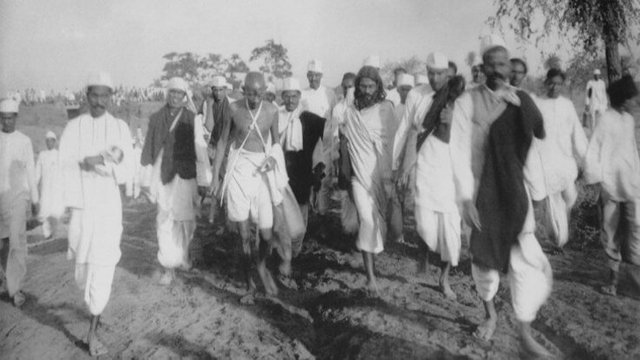
Gandhi's ashram and Indian caste system
In 1915 Gandhi founded an ashram in Ahmedabad, India, which was open to all castes. Wearing a simple twist and shawl, Gandhi had won a continuous life devoted to prayer, fasting, and meditation. He came to be known as "Mahatma", which means "Great Spirit". In 1932, Gandhi imprisoned in India at that time, he started a six-day fast to oppose the British decision to separate "untouchables", which is on the lowest part of India's caste system, Allocating them to different voters. Public shouting forced the British to amend the proposal.
Assassination of Gandhi
In the late afternoon of January 30, 1948, 78-year-old Gandhi, weakened by the repeated hunger strike, stuck with his two grandmothers because he took them from his living quarters in a prayer meeting in Birla House, New Delhi. Go Hindu extremist Nathuram Godse was troubled by Gandhi's tolerance of Muslims, before pulling a midriff pistol, kneeled before the Mahatma and shot him three times at the point-blank border. A violent action took the life of a pacifist who propagated his life to non-violence. Godse and co-conspirator were executed in November 1949, while additional plotters were sentenced to jail.
When and where was Gandhi born?
Indian Nationalist leader Mahatma Gandhi (born Mohandas Karamchand Gandhi) was born on 2 October 1869 in Porbandar, Kathiawar, India, which was then part of the British Empire.
Wife and family
Mahatma Gandhi's father, Karamchand Gandhi, was working as a Chief Minister in Porbandar and other states in western India. His mother Puthibai was a deeply religious woman who regularly used fasting.
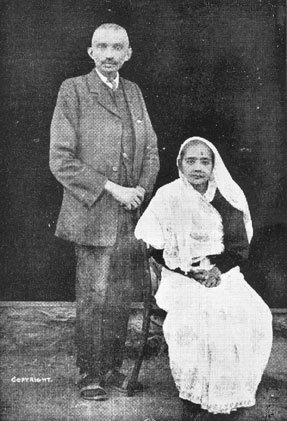
At the age of 13, Mahatma Gandhi married Kasturba Makanjali, a businessman's daughter in a systematic marriage. In 1885, he tolerated the death of his little child immediately after his father passed and after that. In 1888, Gandhi's wife gave birth to the first of four living sons. The second son was born in India 18 9 3; While living in South Africa, Kasturba will give birth to two more sons, one in 1897 and one in 1900.
Early life and education
Young Gandhi was a shy, irreversible student who was so scared that he slept with light as a teenager. In the coming years, the teenager revolted against smoking, eating flesh and stealing changes from domestic servants.
Although Gandhi was interested in becoming a doctor, his father had hoped that he would also become a government minister, so his family motivated him to enter the legal profession. In 1888, 18-year-old Gandhi went to London, England to study law. Young Indians were struggling with the transition in Western culture.
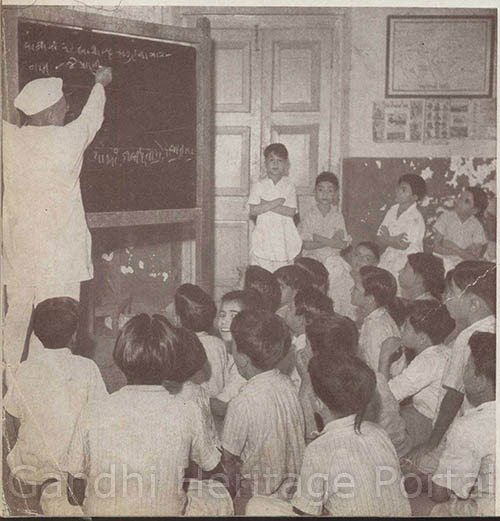
On returning to India in 1891 Gandhiji learned that his mother died just a few weeks ago. He struggled to gain his leg as an advocate. In his first courtroom, when a time came to investigate a witness, then there was a nervous Gandhi empty. He ran away from the courtroom after reimbursement of his client for his legal fees.
Gandhi in South Africa
After struggling to find work in India as an advocate, Gandhi received a one-year contract to do legal services in South Africa. In April 1893, he went to Durban in the South African state of Natal.
When Gandhi arrived in South Africa, he was quickly scared by discrimination and racial segregation faced by Indian expatriates in the hands of British British and Boer officers. On his first appearance in Durban Courtroom, Gandhi was asked to remove his turban. They refused the court and left. Natal advertisers made fun of them in the print as "an unwanted visitor"
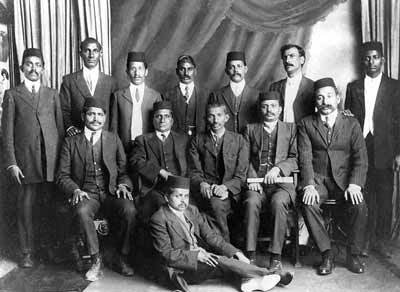
A fundamental moment in Gandhi's life took place during a training visit to Pretoria, South Africa on June 7, 1893, when a white man resisted his presence in the first class railway compartment, though he had a ticket. Refusing to go behind the train, Gandhi was forcibly removed and thrown by a train at a station in Pietermaritzburg. His work of civil disobedience made him determined to dedicate himself to fighting "the deep disease of color bias". They tried to face the difficulties in the process of disease and in the process if possible "that night." Night ahead, small, indisputable people will grow in a huge force for civil rights. In 1894, Gandhi formed the Indian National Congress to fight discrimination.
At the end of his year-long contract, Gandhi agreed to return to India, until he learned about the bill before the Vietnam Legislature before a legislative assembly before the assembly, which denied the right to vote for Indians. will do it. Fellow expatriates convinced Gandhi to stay and lead the fight against the law. Though Gandhi could not stop the law, he still attracted international attention to injustice.
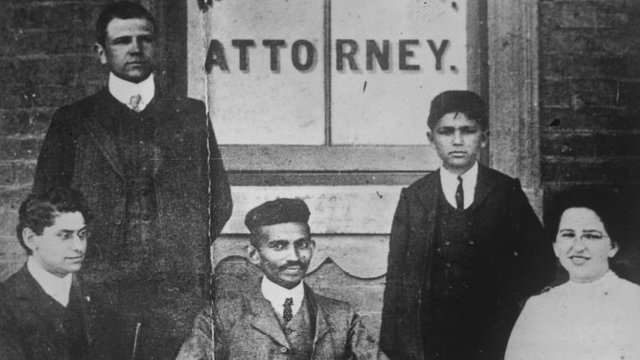
After a short trip to India at the end of 1896 and early 1897, Gandhi returned to South Africa with his wife and children. Gandhi carried out a thorough legal practice, and on the outbreak of the Boer War, he raised all Indian Ambulance Kores of 1,100 volunteers to support British reasons, arguing that if Indians were to have full rights of citizenship in the British Empire Hopefully, they also need their responsibilities as well for the shoulder.